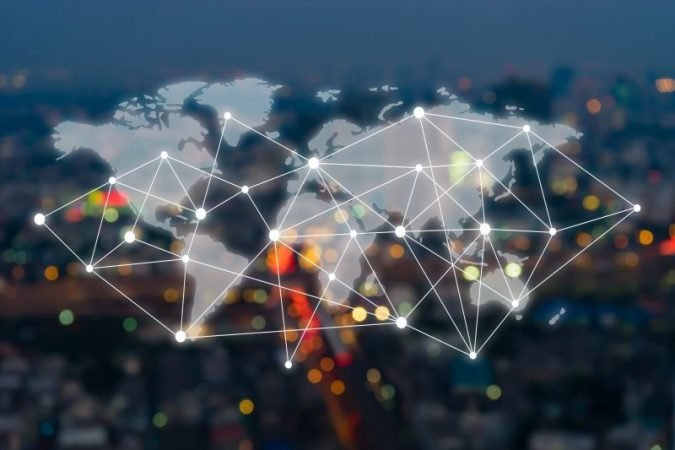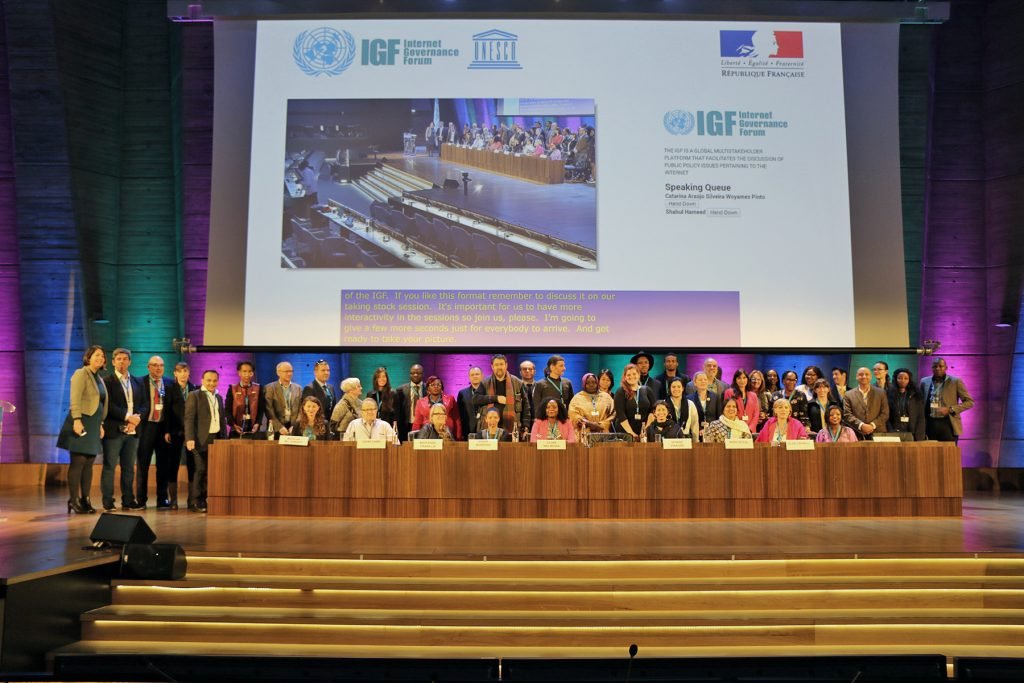Debates on cyberspace governance: – Multilateralism vs Multistakeholderism

The most dominant feature of globalization is the commercialization of internet since 1990s after invention of world wide web (www). It acted as a catalyst to the rapidly spreading phenomenon of globalization, and its impact on every aspect of our lives from economic, political, societal, cultural etc. are widely noticed. But it is also continuously emerging as the most potent threat to sovereignty of states.
Internet has become an inseparable part of the lives of humans across globe. It has revolutionized the whole landscape of telecommunication, economy and had impacted our lives in both positive and negative ways. The realm of International relations is too, not left untouched by its externalities.
It is unequivocally accepted that technology would be the major driver of economic growth in the upcoming decades, with emerging technologies as 5G and Artificial Intelligence (AI) at the forefront, but due to the anarchical nature of the internet governance and the dominance of the Developed countries over the digital infrastructure(Big tech), internet posses grave potential threats to the sovereignty of nations. Cyber attacks, election peddling and use of technology for spreading propaganda, banking frauds etc. are becoming the new normal nowadays. The alleged Chinese cyber attack on India’s critical digital as well as power infrastructure in October 2020, resulting in power blackout, is a prime example of the misuse of internet and technology. The various legal issues involving companies as Google and Facebook with various sovereign governments including the US , over many issues ranging from freedom of expression to distribution of revenues, have reiterated the need for a robust mechanism for their governance

Nations are in the middle of a strategic and multidimensional competition for money, power, and control over all aspects of the Internet and its economy. These struggles are occurring across a range of interrelated economic, technical, regulatory, political, and social spheres and the gamesmanship is intense. The players include multinational corporations self-organized citizen and interest groups, and state and non-state actors.
As the debate between tech giants as twitter and WhatsApp(Facebook) and Indian Government intensifies over the new IT Rules, lets look at major approaches of cyberspace governance.
How to approach Cyberspace Governance? Multilateralism vs. Multistakeholderism
When approaching cyberspace governance, we should consider several issues. Should cyberspace be governed at the first place? Who should be involved in governance? How should cyberspace be governed? Is Mixed governance involving public-private partnerships useful in cyberspace? How can states exercise their sovereignty in domain of cyberspace?
These issues can be classified in three major approaches: distributed governance, multilateral governance and multi-stakeholderism.
Distributed Governance:
In early days of Internet development, governance could be described as a distributed system. Governance was limited, unorganized and restricted within online communities, who asserted that information had to be free, and not controlled. It reflects the era where online communities were small, homogeneous and able to regulate themselves. In 1996, John Perry Barlow, the founder of the Electronic Frontier Foundation (EFF) stated in The Declaration of the Independence of Cyberspace that ‘Governments are not welcome among us…Cyberspace does not lie within your borders…We are forming our own Social Contract. This governance will arise according to the conditions
of our world, not yours’ . In the 1990s, Internet had less than a million users and was in a primitive phase of development. Today, the Internet users are in billions. Cyberspace has become world’s most important infrastructure and it has reached an evolutionary phase where regulations are must. This model, though still popular in some online communities, is incapable of providing efficient policy solutions which would be widely acceptable.

Multilateral Approach: –
Sovereignty is of central importance to the advocates of the multilateral governance. It views cyberspace in Hobbesian terms. Those who support this state-centric approach understand cyberspace as a chaotic domain that reinforces insecurity and thus argue that states should be the ones to formulate policy in cyberspace. It suggests creation of a body within the United Nations (UN), which will be responsible for cyberspace governance, but at the same time states will have the power to set their own national policies. Russia, China, India, Iran and Saudi Arabia have been traditionally supporting it. Following the Edward Snowden disclosure, multilateral governance has gained acceptance even among some EU member states which seek to protect their cyber-borders and data from the sur lance systems of the US .
Governments view the privacy policies adopted by transnational companies like Google and Twitter as a threat to digital sovereignty and national security. It has been strongly argued that in an era of great power antagonism, exercising of state sovereignty in to secure national digital assets and critical infrastructure, could lead to the frag-mentation—Balkanization of cyberspace . Countries have choice to break off from the current Internet and form their own regional or national Intranets. States are examining the option of creating ‘national cyberspaces’, building trans-oceanic cables and store Internet data on servers within their national territories. Policies necessary for Ensuring the protection and integrity of data are important. Those who advocate multilateral approach, believe that Internet governance should respect the Westphalian notion of sovereignty. Its main priorities are protection of digital sovereignty and information security. Example which fits to a certain extent with the multilateral model is the Shanghai Cooperation Organization (SCO). India, ,China ,Russia ,Iran and some other Central Asian states have been coordinating their Internet security policies through the SCO and conduct cyber-exercises which are designed to counter Internet-enabled political uprisings. SCO is an example of low-level multilateral cooperation between states that prefer a tightly controlled Internet .
Multi- Stakeholder Approach:-
Much different from the above approach, the multi-stakeholder governance model involves state and non-state actors representing the private sector and civil society. It believes that governments alone cannot regulate cyberspace . So, other actors as technical corporations, major startups, internet users and civil organizations should also be involved in cybergovernance . Microsoft, Apple, Google, Yahoo, Weibo, Skype, Dropbox, Amazon, Twitter, Facebook and are only some of the numerous companies, technical providers and search engines that collect and store data. Supporters of the multi-stakeholder governance model believe that cyberspace norms will be accepted by internet users, only if they are involved in designing them. This will enhance legitimacy and authority of institutions, organizations and companies in cyberspace.

Multi-stakeholderism advocates the inclusive participation of all relevant actors that deal with cyberspace governance. The advantage of the multi-stakeholder approach is that all relevant actors can participate and be heard on an equal basis. Inclusiveness and representativeness are the core principles of this approach. Ideally, the stakeholders not only produce norms and set their own standards, but also define possible repercussions for non-compliance. This approach should not be understood as an end in itself, but rather as a process to reach effective governance of Cybergovernance.
It does not aim to replace states. Also, various stakeholders do not participate in the same way and to the same extent , For example, civil society actors, private sector organizations and global think tanks might play a key role in shaping and institutionalizing norms of behavior , but it is only states that can enforce various regulations with respect to cybergovernance. Supported by the US, UK, Canada, Australia and organizations like Google .
Conclusion
With the onset of internet , along with many other positive and negative externalities, it brought a new way of attacking states Sovereignty. Establishing a social contract for cyberspace, that would involve governments, companies and civil society actors, seems unrealistic for the near future. Cyberspace lacks a single forum or international organization that is responsible for regulating its activities. The future of cyberspace governance lies in balancing between great power competition ;balancing sovereignty and globalisation; and power asymmetries both between and within states.
Just as the contest among liberal democratic, fascist, and communist social systems defined much of the twentieth century, so the struggle between liberal democracy and digital authoritarianism, but also that between transnational technocratic colonialism and assertive techno-nationalism is set to define the twenty-first.(Tharoor and Saran,2020,p.168)
Reference
Books
• Shashi Tharoor and Samir Saran, The New World Disorder and the Indian Imperative (Aleph Book Company, New Delhi, 2020).
• Liaropoulos, A.N. (2017). Cyberspace Governance and State Sovereignty. In Bitros, G. and Kyriazis, N., 2017. Democracy and an Open-Economy World Order. 1st ed. Cham,Switzerland:
Springer, pp.25-35.
Other sources
• Sanger, D. and Schmall, E., 2021. China Appears to Warn India: Push Too Hard and the Lights Could Go Out. [online] Nytimes.com. Available at: < https://www.nytimes.com/2021/02/28/us/politics/china-india-hacking-electricity.html >
• The Economic Times. 2021. India bans 59 Chinese apps including TikTok, WeChat, Helo. [online] Available at: < https://m.economictimes.com/tech/software/india-bans-59-chineseapps-including-tiktok-helo-wechat/articleshow/76694814.cms >


















